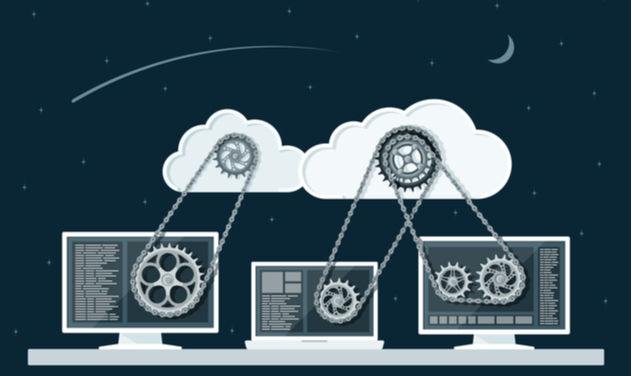An increased number of businesses are joining the cloud – moving from office desktops to hosted desktops. This technology is extremely profitable and provides various benefits, such as efficiency, security, mobility, uptime, and productivity.
However, many times, businesses fall in a position with multiple bottlenecks, even with an efficient technology like the cloud. To mitigate these challenges, it is necessary to spend considerable time understanding business needs.
Hence, before considering hosted desktop implementation, review the following challenges and understand the process of mitigating them.
5 challenges you can face while moving to hosted desktops
Did you know that more than 70% of organizations utilize the public, private, or hybrid cloud?
The utilization of cloud technology is rising – more now because of the pandemic.
Unfortunately, during the implementation, you can face certain challenges. We have discussed these five challenges and solutions for every hurdle:
1. Licensing terms
Your licensing terms have an essential role to play in your cloud hosted desktop. Hence, it is necessary to ensure proper inclusion of Virtual Desktop Access, Client Access License, and other factors. This will define the pricing and usage terms of hosted desktops.
For instance, with Software Assurance, the cost of Virtual Desktop Access is included in the agreement. This means that the cost of accessing the end device is neutralized.
When these technicalities are not compared and reviewed in the licensing agreement, users end up managing hosted desktops more than required – or they simply pay more for the service.
2. Change management
Change is inevitable when working on a big IT project or migrating our data from a legacy system to a better-managed system, or implementing any other technology in our organization. These implementations are accompanied by many process-level and functional changes in the workplace.
Therefore, hosted desktop implementation also faces change management challenges. This is why proper modification of relevant processes can offer actionable results throughout the business. Audit your internal processes and change them according to the new technology.
3. User acceptance
A sub-topic of change management is user acceptance. The level at which our end users accept hosted desktops defines the success of implementation. Many organizations migrate to new technologies without preparing the workforce. It often leads to low productivity and decreased efficiency.
Hence, you need to remind and assure your staff that hosted desktops will be at least as beneficial as the old ones. If possible, discuss the viability and benefits and make your employees understand why this migration is necessary for the organization.
4. Requirements of the business
Business requirements are equally crucial to other factors. However, enterprises forget to assess the business feasibility of a technology, which causes bottlenecks. As a result, they implement hosted desktops without knowing the configurations or number of thin clients needed for the organization.
Without identifying your business requirement, how can you implement technology successfully?
Audit your processes, figure out challenges in your organization, and understand the benefits of hosted desktops for your enterprise.
5. Training
Lastly, companies fail to invest in their employees and training. A major shift in technology requires some ground training for employees, which helps in adjusting to the new working pattern.
Hosted desktops are similar to your office desktops, so training is minimal. However, we still require one or two sessions, including different training plans for different levels of employees. This would create a proper flow for helping employees adjust to hosted desktops.
This will help improve your productivity and operational efficiency as well.
Conclusion
Every technological implementation in your business has some implications, whether it is related to the management, performance, or service provider. Similarly, moving from desktop implementation to hosted desktops comes with some minor challenges. Understand these challenges and their solutions to receive a robust, profitable cloud implementation.
Athout bio
Bhavleen Kaur is a content writer at Ace Cloud Hosting- a leading virtual desktop infrastructure (VDI) Solutions provider. She specializes in writing about VDI, DaaS, cloud technology,cloud-based desktop & likes to know about upcoming technology and trends. In her free time, you can find her reading novels or watching movies.



